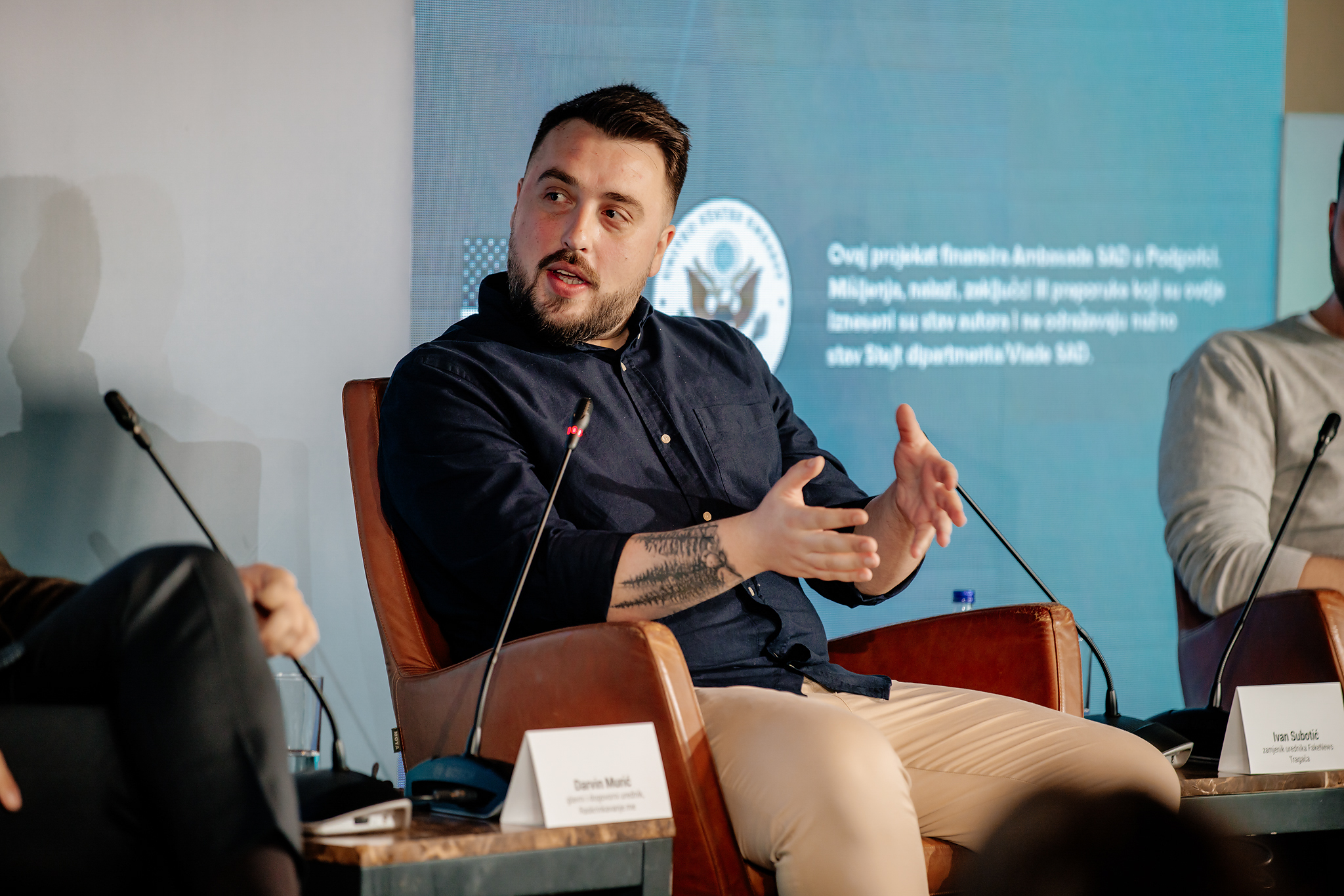The final days of the election campaign have been marked by mutual accusations between candidates, megalomaniac promises, the usual media bias, and cheaply “concocted” disinformation.
When we say cheap, we mean not-so-sophisticated or well-thought-out disinformation that, nevertheless, does the job and reaches a large audience.
For instance, in the past few days, the editorial team of Raskrinkavanje dealt with a case in which a statement by DPS councilor Andrija Klikovac, that his party would partner with anyone looking to move Podgorica and Montenegro forward, was falsely attributed to Nadja Ljiljanic, a candidate from the “Jakov Milatovic—For a Better Podgorica” list.
Party agitators and bots photoshopped a meeting between the current and former presidents, Jakov Milatovic and Milo Djukanovic, during the handover of duties in 2023 and presented it as if it had happened recently. They claimed, without basis, that the meeting took place in a Podgorica hotel and that a collaboration was arranged.
During one of the debates, minister and leader of the Europe Now Movement list, Sasha Mujovic, responded to a question from GP URA president Dritan Abazovic about whether he had got an apartment from DPS. Mujovic explained that, like many university professors, he bought an apartment under favorable conditions 13 years ago. Despite this, one local portal published that Mujovic confirmed and admitted DPS had given him an apartment. Ironically, the same portal shared a video that contradicted their own claim.
Nationalist online pages, like the well-known Bunt, went as far as to claim that DPS MP Andrija Nikolic promised the Kosovo prime minister that if his party won the election, they would rename Moskovska Street to Adem Jashari Street.
As expected, the trend of publishing fabricated opinion polls persisted, following the familiar practice of attributing percentages to parties as they see fit while presenting the pollsters as esteemed researchers.
Unlike many previous campaigns, this one has, so far—and we hope this remains the case through to the end—largely escaped the attention of Serbian tabloids and TV networks under the control of the local government. As a result, the audience has been spared the political analyses of gusle players, singers of nationalist songs, independent analysts who are actually political advisers in Montenegro, and other colorful personalities from Pink and Happy TV programs. Even the tabloid portals have barely touched on the elections, except for a few sporadic articles. Unlike in previous elections, there have been no premature declarations of winners or the invention of fake threats to stir tensions.
This project is funded by the U.S. Embassy in Podgorica. The opinions, findings, conclusions, or recommendations expressed herein are those of the author and do not necessarily reflect the views of the U.S. Department of State/Government.
Darvin Muric, Editor-in-Chief of Raskrinkavanje.me


